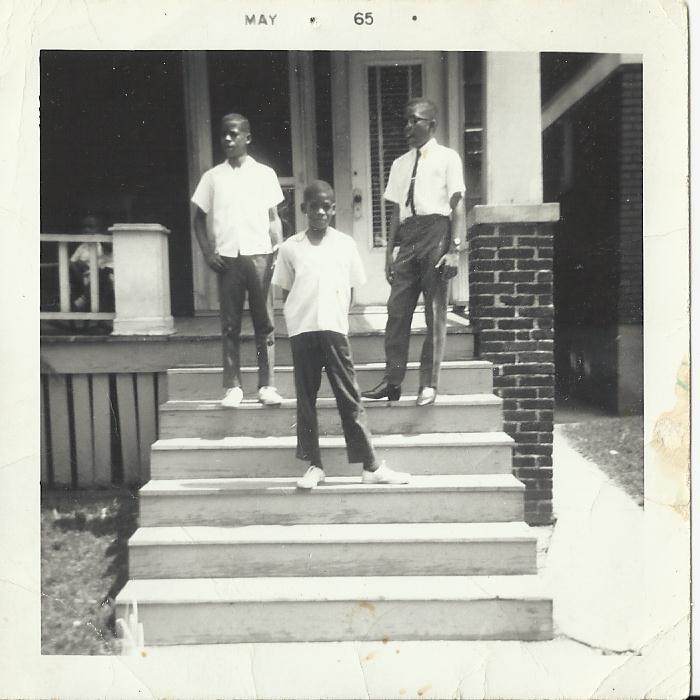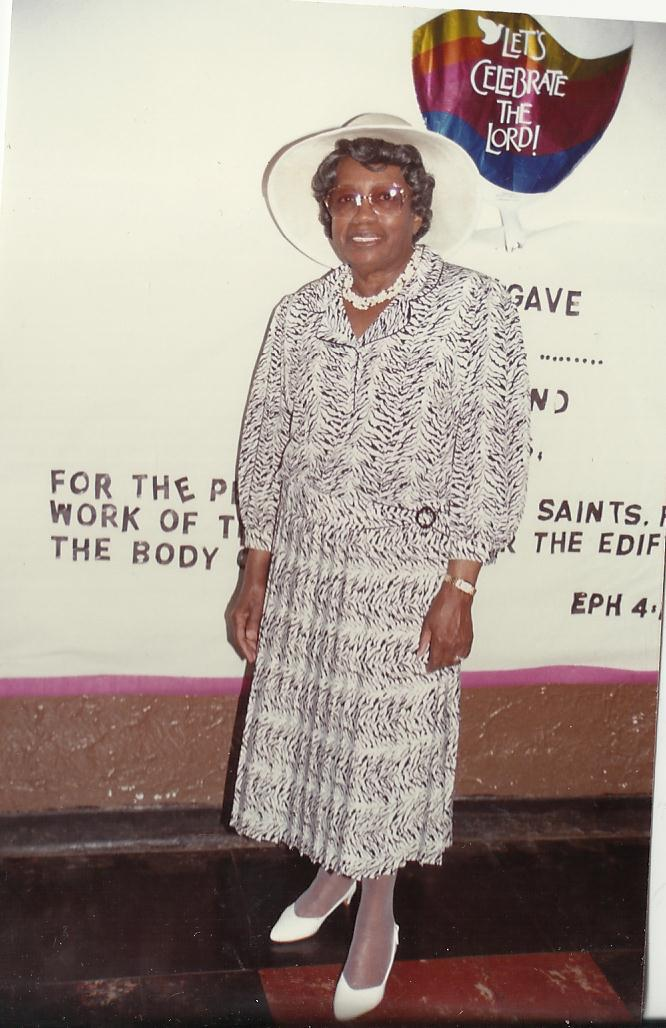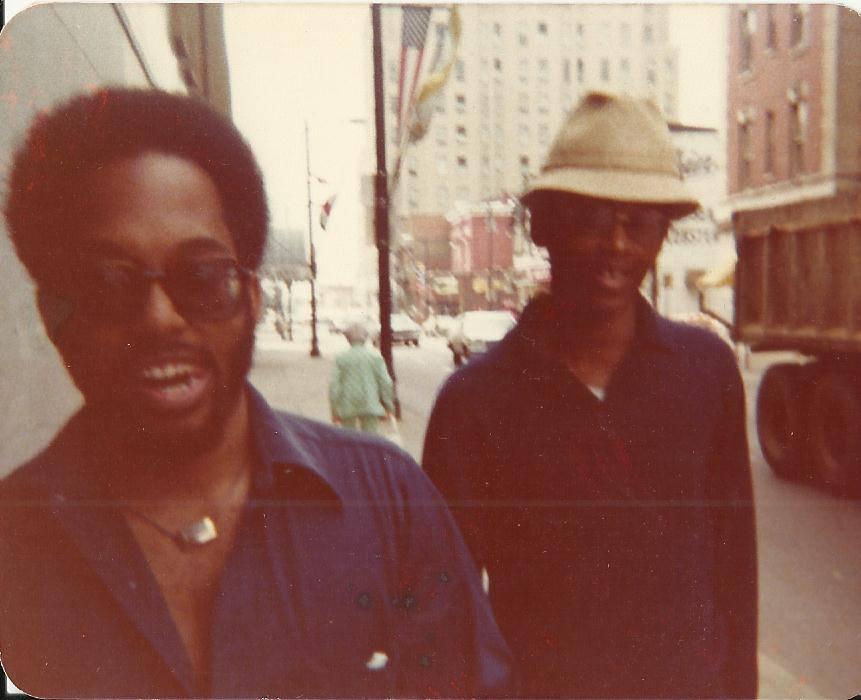
Michael Jaimeson is a Louisvillian today, but certainly not born and raised. At first glance, he may seem like a typical resident of the outer Bluegrass region. Louisville is considered the northernmost Southern city or the southernmost Northern city; like the city itself, there have undoubtedly been many contradictions in Jaimeson’s life. Born in Detroit, Michigan, into a life of poverty, in the early ’50s, Jaimeson’s story would take on a quintessential “Cooley High” storyline. addiction
Jaimeson was illegitimate, the second-born son of a young, single mother on welfare. His young life was riddled with adversity, from the estrangement of his birth father to an abusive alcoholic stepfather. Jaimeson also had severe vision impairment, which was undetected until the age of four. His life’s journey began as one with insurmountable challenges. Many of these hardships would influence the course of Jaimeson’s life, and so too would his resilience and determination to overcome them. But according to Jaimeson, the most crucial changes didn’t happen without help in the form of divine intervention.
Early Life of Struggle
During his childhood, Jaimeson took on the role of the family caretaker. Early on, he realized that there was no one to look after him or his sibling. His home life involved living with what he describes as “children in adult bodies” (i.e., his mother and alcoholic stepfather). Therefore, he was forced to take on adult responsibilities like getting a job, paying the bills, and making meals at a very young age.
What happened in Jaimeson’s life was not so different from other young kids growing up in poverty in Detroit in the 1960s. As he developed into early adolescence, he got into trouble with drugs—using and selling them— and affiliated with local neighborhood thugs. He struggled to discover what manhood was all about without any positive role models. Luckily, there was one person he could always turn to, his maternal grandmother, Minnie Mae Adkins. Minnie Mae taught her grandson that “If you keep doing the next right thing, you can never do wrong. “Just by living her life, she inspired me,” said Jaimeson. With the influence of his beloved grandmother, Jaimeson internalized spiritual values; but simultaneously, he rubbed elbows with people considered anything but saintly.

Adulthood
Jaimeson's early childhood trauma eventually led to a young adult life chained to addiction and involvement in illegal activity. Jaimeson “sold drugs and hustled to continue having access to drugs like marijuana, hallucinogens, speed, alcohol, opiates, and valium.” It’s crucial to understand that addiction doesn’t represent weakness in a person’s character, as some people may unknowingly assume. Instead, addiction is a response to trauma, most often linked with childhood trauma.
RELATED: DNA Testing & The Genetics Of Being Black In Addiction
As Jaimeson grew out of his teens and into adulthood, he made several attempts to get straight and live a life that would make Minnie Mae proud. In his early 20’s he was involved in the Job Corps program and worked hard to get his GED and Certified Nursing Assistant (CNA) certification, which eventually afforded him a stable job at an all-Black hospital in Detroit. He also managed to get clean and sober, met the love of his life, and stayed in the church for several years.
Jaimeson was devastated when the relationship didn’t work out; his health began to decline, he lost his job, and his drug use started up again. This was a very dark time in Jaimeson’s life when he reportedly “became a heavy drug user, sold a lot of pot, and contemplated suicide daily.”
In his early 30’s, after several failed attempts to get and stay sober, Jaimeson decided to leave his birth city. “I had to leave Detroit; I was running with the wrong crowd and doing a lot of shady things, which would have led to my death or someone else’s,” Jaimeson explained.
He planned to join his mother and stepfather, who had relocated to Louisville back when Jaimeson was just 15 years old. Ultimately, he would regroup and move on to bigger cities that had more to offer, like Seattle. But that was not how his story played out.
According to Jaimeson, getting established in what he considered a Southern city in the early 80s, even as far north as Louisville, wasn’t easy. Jameson explained that it was common to be denied jobs simply because people didn’t want to hire Blacks. His inability to get a job and subsequent lack of money to move to Seattle would ultimately play an important role in Jaimeson’s success story. After several failed attempts to find gainful employment and being subjected to racial slurs as he wandered around the city to find a job, he began to pray to God for help. Eventually, those prayers were answered; he found a job at a local hospital working as a part-time orderly.

Seeing the Light
At St. Luke’s Hospital, Jaimeson met a significant person who would be instrumental in his struggle to live a clean and sober life. His name was Jim Malone, and he ran the addiction recovery unit at St. Luke’s. Jaimeson was under the impression he was applying for a job, but, in reality, he would make the most important move of his life by applying to work with Malone.
Malone was a seasoned addiction counselor; he was aware that Jaimeson might have a drug and alcohol use problem. So, Malone agreed that Jaimeson could work on the recovery unit only if he took a drug and alcohol use assessment and followed up with the suggested treatment, provided the test showed that Jaimeson was an addict. Jaimeson’s test results were off the charts, and he agreed to start drug and alcohol treatment, although he had no intention of working an honest recovery program. In reality, Jaimeson just wanted to land the orderly job.
Once Jaimeson started in group therapy, the jig was up, so to say; Malone called him on faking his 12-step recovery work. Then, one day an unsuspecting rescuer would not only change Jaimeson’s game, but she would also turn his entire world upside down. Her name was Sister Janine, and she often attended the 12-step groups on St. Luke’s rehab unit. According to Jaimeson, “She sat in the group looking at her feet the entire time, I didn’t think she heard a word anyone said, nor did I feel that she cared about me or anyone else.” Then one day, Sister Janine hugged Jaimeson; it was the first time in his life he felt deep love from another human being. Jaimeson experienced what is commonly referred to in 12-step programs as “a spiritual awaking.” This type of sudden shift in perspective usually occurs gradually over time, but it was instantaneous in Jaimeson’s experience. Needless to say, he found long-term sobriety.
RELATED: 3 Steps To Get Through Alcohol Dependency
Giving Back
Once Jaimeson finally broke the chains of the obsession to use addictive substances, his life began to take a drastic change. He was promoted to a new role as Intake Coordinator of the rehab unit. He helped countless people get into treatment and facilitated recovery support groups, telling his recovery story to people struggling with addiction. Jaimeson also volunteered for the American Cancer Society Chair of West Louisville Education Unit—providing education within the Black community, singing in his local church choir, and was involved in the NAACP and the Opportunity Industrial Counsel of America (OIC).
RELATED: Supporting Your Loved One Through Recovery From Addiction
Today
Today, Jaimeson continues to be involved in reaching out to others, with a deep passion for helping to build a strong African American community. He’s passionate about helping the Black community by being involved in his role as a Board Member on Louisville’s Public Media Advisory (PBS). Another project that is very dear to his heart is working with a team of like-minded people to educate the public about issues that substantially impact the community; Jaimeson records inspirational podcasts about spirituality, political opinions, community, empowerment, and more.
Today, Jaimeson is also an Ordained Minister, he says that although he doesn’t specifically identify as being a Christian, he believes in the teachings of Jesus Christ as well as in what he calls the “holy potential,” a concept that involves agape love (i.e., unconditional love for every living being).
Life is full of many twists and turns involving the hardships and challenges we often face. But it’s inspirational to know a person, like Jaimeson, who faced such unfair circumstances early in life, then was given what he most needed, to turn his life around. It’s also good to know that there are people out there, angels of sorts, like Sister Janine, and Jim Malone, just waiting to be of service when a person as deserving as Michael Jaimeson needs a break.








